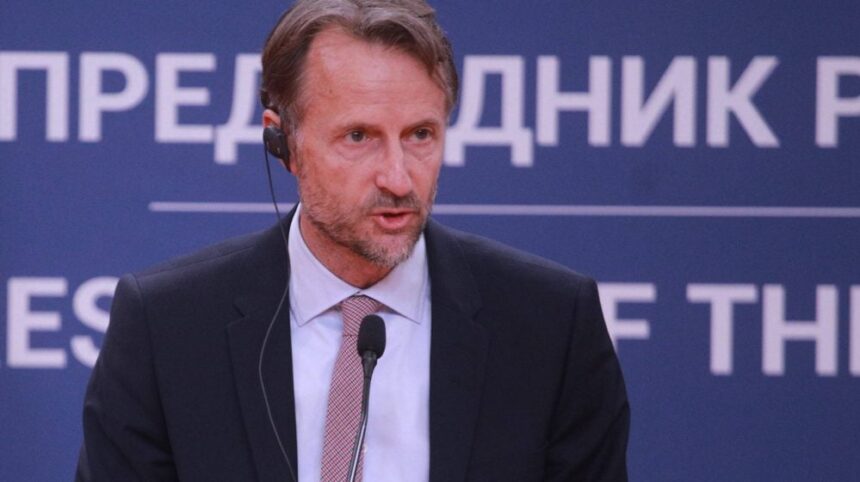Head of the EU Delegation, Andreas von Bekerat, commented today on the economic aspects of the European Commission’s annual report, emphasizing that introducing a trade margin cap of 20% could lead to significant market disruptions, reduced investments, losses for sellers, store closures, and job losses.
During the presentation of the European Commission report to companies, government institutions, and the business community, Bekerat highlighted that Serbia’s economy has made notable progress, and the country’s economic power remains strong, with significant GDP growth in 2024, although growth slowed in the first half of this year.
“The state still plays the largest role in the economy, which can hinder competitiveness and private sector development. State-owned enterprises remain highly present in key sectors employing a large portion of the workforce,” Bekerat stated.
He added that the business community faces obstacles such as “red tape,” political interference, weak rule of law, and limited transparency in public administration.
Bekerat emphasized that Serbia’s production and service sectors are well-developed thanks to close economic integration with the EU, which accounts for almost 60% of goods trade and 45% of total trade with Serbia.
Regarding reforms, he noted that green transition efforts are progressing too slowly, energy infrastructure is outdated, and Serbia remains dependent on Russia for gas and oil, despite steps toward diversification.
“Serbia’s commitment must be shown through actions, constant reforms, and a public narrative affirming its EU future,” Bekerat stressed, noting the need for political will and strong reforms.
He reaffirmed that EU enlargement is a political priority and a geopolitical investment in a stable, united, and democratic Europe.
Bekerat also highlighted slower reform processes compared to last year, a turbulent political situation increasing polarization, and excessive use of force and pressure on civil society.
Positive reforms were acknowledged, including the adoption of the Law on a Unified Voter Register and selection of members of the Regulatory Council for Electronic Media, though he emphasized sincere implementation is required to achieve real change.
Minister for European Integration Nemanja Starović stated that Serbia accepts the annual European Commission report as a detailed inventory, showing achievements and mapping challenges ahead.
“Serbia remains highly prepared for EU accession, just below Montenegro, ahead of other countries,” Starović said, noting that the report recommends opening Cluster 3 for accession negotiations.
Pasquele de Miko, Head of the EU Delegation’s Department for European Integration and Economic Affairs, explained that implementing the “special” trade margin regulation could negatively affect Serbia’s business climate, noting that the measure is more political than business-oriented.
He also warned that while GDP is expected to continue growing, disruptions could occur, for example, if the Pančevo refinery ceases operations for a year.





